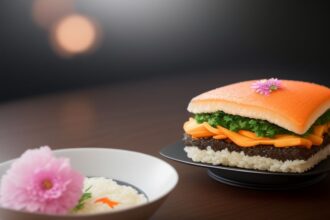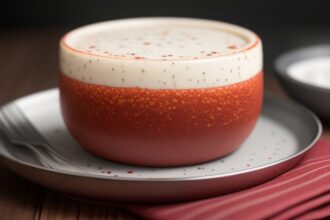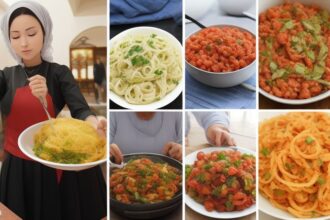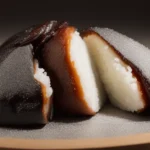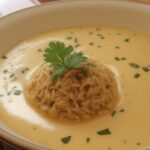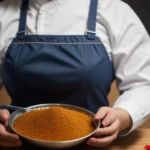The Art of French Cooking: Mastering Techniques and Recipes
French cuisine is known worldwide for its elegance, sophistication, and depth of flavors. From buttery croissants to rich boeuf bourguignon, French cooking is truly an art form. In her iconic cookbook, “Mastering the Art of French Cooking,” Julia Child demystifies the techniques and recipes that make French cuisine so special. In this article, we will explore the secrets behind mastering the art of French cooking, providing you with a comprehensive guide to creating delicious and authentic French dishes in your own kitchen.
1. The History of French Cuisine
French cuisine has a long and storied history, dating back to the Middle Ages. Influenced by neighboring countries, as well as trade routes and colonialism, French cuisine has evolved over the centuries to become the epitome of culinary excellence. From the lavish banquets of Versailles to the cozy bistros of Paris, French cooking has always been at the forefront of gastronomy.
2. The Five Mother Sauces
One of the key elements of French cooking is the use of sauces to elevate and enhance dishes. The five mother sauces – béchamel, velouté, espagnole, hollandaise, and tomato – form the backbone of French cuisine. By mastering these fundamental sauces, you can create a wide variety of dishes, from creamy macaroni and cheese to rich beef stew.
3. The Importance of Technique
French cooking is as much about technique as it is about ingredients. From sautéing and braising to poaching and baking, mastering the various cooking methods is essential to creating authentic French dishes. By learning how to properly chop, slice, and dice ingredients, as well as how to deglaze a pan and create a roux, you can achieve the perfect texture and flavor in your dishes.
4. Essential Ingredients in French Cooking
French cuisine is characterized by its use of high-quality, fresh ingredients. From butter and cream to herbs and spices, French cooking relies on simple yet flavorful components to create memorable dishes. When preparing French recipes, be sure to use the best ingredients you can find, as they will make a significant difference in the final outcome.
5. Classic French Recipes
From coq au vin to ratatouille, French cuisine is full of classic recipes that have stood the test of time. These dishes are beloved for their rich flavors, comforting textures, and timeless appeal. By mastering a few key recipes, such as beef bourguignon and chocolate mousse, you can impress your friends and family with your culinary skills.
6. The Art of Baking
French baking is renowned for its precision and attention to detail. From delicate pastries to crusty baguettes, French bakers have perfected the art of baking over centuries. By following traditional techniques, such as folding and proofing, you can create beautiful and delicious baked goods in your own kitchen.
7. Pairing Food and Wine
No discussion of French cooking would be complete without mentioning the importance of pairing food and wine. French wines are some of the finest in the world, and finding the perfect match for your meal can elevate the dining experience to new heights. By learning the basic principles of food and wine pairing, you can create memorable meals that delight all the senses.
8. Regional Cuisine in France
France is a country of diverse landscapes and climates, each of which has its own unique culinary traditions. From the seafood-rich cuisine of Brittany to the hearty dishes of Alsace, every region in France offers a distinct culinary experience. By exploring regional cuisine, you can gain a deeper appreciation for the diversity and depth of French cooking.
9. Modern French Cooking Trends
While traditional French cooking will always have a place in the culinary world, modern chefs are constantly pushing the boundaries of what is possible in the kitchen. From molecular gastronomy to plant-based cuisine, French chefs are experimenting with new techniques and ingredients to create innovative and exciting dishes. By staying up to date on the latest trends in French cooking, you can keep your meals fresh and exciting.
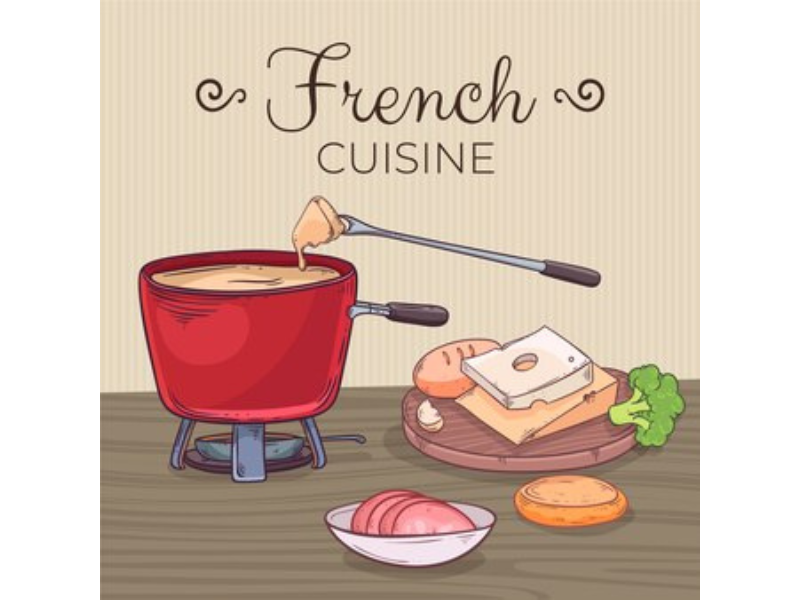
10. Tips for Mastering French Cooking
To truly master the art of French cooking, it is important to practice and experiment with different recipes and techniques. Start with simple dishes and work your way up to more complex ones, taking your time to savor each step of the cooking process. Don’t be afraid to make mistakes – they are often the best learning opportunities. And most importantly, have fun in the kitchen and enjoy the process of creating delicious French meals.
11. Resources for Learning French Cooking
In addition to Julia Child’s “Mastering the Art of French Cooking,” there are many other resources available to help you hone your skills in the kitchen. Cooking classes, online tutorials, and cookbooks by renowned French chefs can all provide valuable insights and inspiration. By exploring different sources of learning, you can deepen your understanding of French cooking and become a more confident and capable chef.
12. The Joy of Sharing French Cuisine
One of the greatest joys of French cooking is sharing your creations with others. Whether hosting a dinner party for friends or cooking a special meal for your loved ones, the act of preparing and serving food can bring people together in a meaningful way. By sharing the flavors and aromas of French cuisine with those around you, you can create lasting memories and forge deeper connections.
13. The Legacy of Julia Child
Julia Child’s impact on the world of cooking cannot be overstated. Her passion, humor, and dedication to teaching others how to cook have inspired countless home chefs to explore the world of French cuisine. By following in her footsteps and embracing the principles of “Mastering the Art of French Cooking,” you can carry on her legacy and continue to spread the joy of cooking with others.
14. Embracing the Art of French Cooking
French cooking is not just about making delicious food – it is about embracing a way of life. By immersing yourself in the techniques, flavors, and traditions of French cuisine, you can cultivate a deeper appreciation for the beauty and complexity of food. Whether you are a novice cook or a seasoned chef, the art of French cooking offers endless opportunities for creativity and self-expression.
15. Conclusion
In conclusion, mastering the art of French cooking is a rewarding and enriching journey. By learning the techniques and recipes that define French cuisine, you can elevate your cooking skills and create memorable dishes that will delight your taste buds and impress your guests. Whether you are exploring classic recipes or experimenting with modern trends, the world of French cooking offers endless possibilities for culinary creativity and exploration. So grab your apron, sharpen your knives, and get ready to embark on a delicious adventure into the heart of French cuisine. Bon appétit!
FAQs about “The Art of French Cooking: Mastering Techniques and Recipes”
- What makes “The Art of French Cooking” a must-have for aspiring chefs and cooking enthusiasts? This book serves as an essential guide to mastering the techniques and recipes of French cuisine, offering in-depth insights into the culinary artistry and traditions that define French cooking.
- Which techniques and recipes are covered in this comprehensive guide? “The Art of French Cooking” covers a wide range of techniques and recipes, including classic French sauces, pastry making, butchery, baking, and more, providing readers with a thorough understanding of the fundamentals of French culinary techniques.
- How does this book celebrate the rich heritage and culinary traditions of French cuisine? This book celebrates the rich heritage and culinary traditions of French cuisine by exploring the history, regional variations, and cultural significance of French dishes, providing readers with a deeper appreciation for the artistry and craftsmanship behind French cooking.
- Are there specific chapters or sections dedicated to explaining key French cooking techniques and ingredients? Yes, this book includes dedicated chapters or sections that explain key French cooking techniques such as sautéing, braising, and poaching, as well as essential ingredients like herbs, spices, and wine, ensuring readers have a solid foundation in French culinary essentials.
- Can readers expect to find practical advice and tips for honing their cooking skills and mastering French recipes from this book? Absolutely! “The Art of French Cooking” offers practical advice, troubleshooting tips, and step-by-step instructions for readers to hone their cooking skills and successfully recreate classic French recipes in their own kitchens, allowing them to embrace the elegance and sophistication of French cuisine.
Advantages:
- Culinary Prestige: “The Art of French Cooking: Mastering Techniques and Recipes” conveys a sense of culinary prestige, positioning French cuisine as a sophisticated and revered culinary tradition, attracting readers interested in learning from a classic culinary heritage.
- Educational Value: The title promises to teach readers the techniques and recipes essential to mastering French cooking, offering valuable insights into the foundational skills and methods that underpin French culinary excellence.
- Comprehensive Approach: By covering both techniques and recipes, the title offers a comprehensive learning experience for readers, equipping them with the knowledge and skills needed to replicate classic French dishes with authenticity and precision.
- Culinary Exploration: French cuisine is renowned for its diversity and complexity, and the title encourages readers to explore the depth and richness of French gastronomy, fostering a deeper appreciation for French flavors, ingredients, and culinary traditions.
- Practical Guidance: As a guide to French cooking, the title serves a practical purpose for readers interested in honing their culinary skills, providing them with practical guidance, cooking tips, and recipe ideas to help them develop their proficiency in French cuisine.
Disadvantages:
- Intimidating for Beginners: The title may be intimidating for beginners or novice cooks, as it implies a level of mastery and expertise that may feel daunting to those new to French cooking, potentially deterring them from exploring French cuisine further.
- Cultural Representation: Focusing solely on the techniques and recipes of French cooking may overlook the cultural and historical context of French cuisine, potentially overlooking the cultural significance and regional diversity of French gastronomy.
- Audience Limitation: The title may primarily appeal to readers with a specific interest in French cuisine or culinary traditions, potentially excluding those who prefer other types of cuisine or are seeking a broader overview of global culinary traditions.
- Subjectivity: The selection of techniques and recipes may be subjective and dependent on the author’s interpretation, potentially leading to differing opinions on what constitutes essential or representative aspects of French cooking.
- Complexity: French cooking is known for its complexity and precision, and the title may not adequately address the challenges and nuances involved in mastering French techniques and recipes, potentially leading to frustration or disappointment for readers seeking practical guidance.



